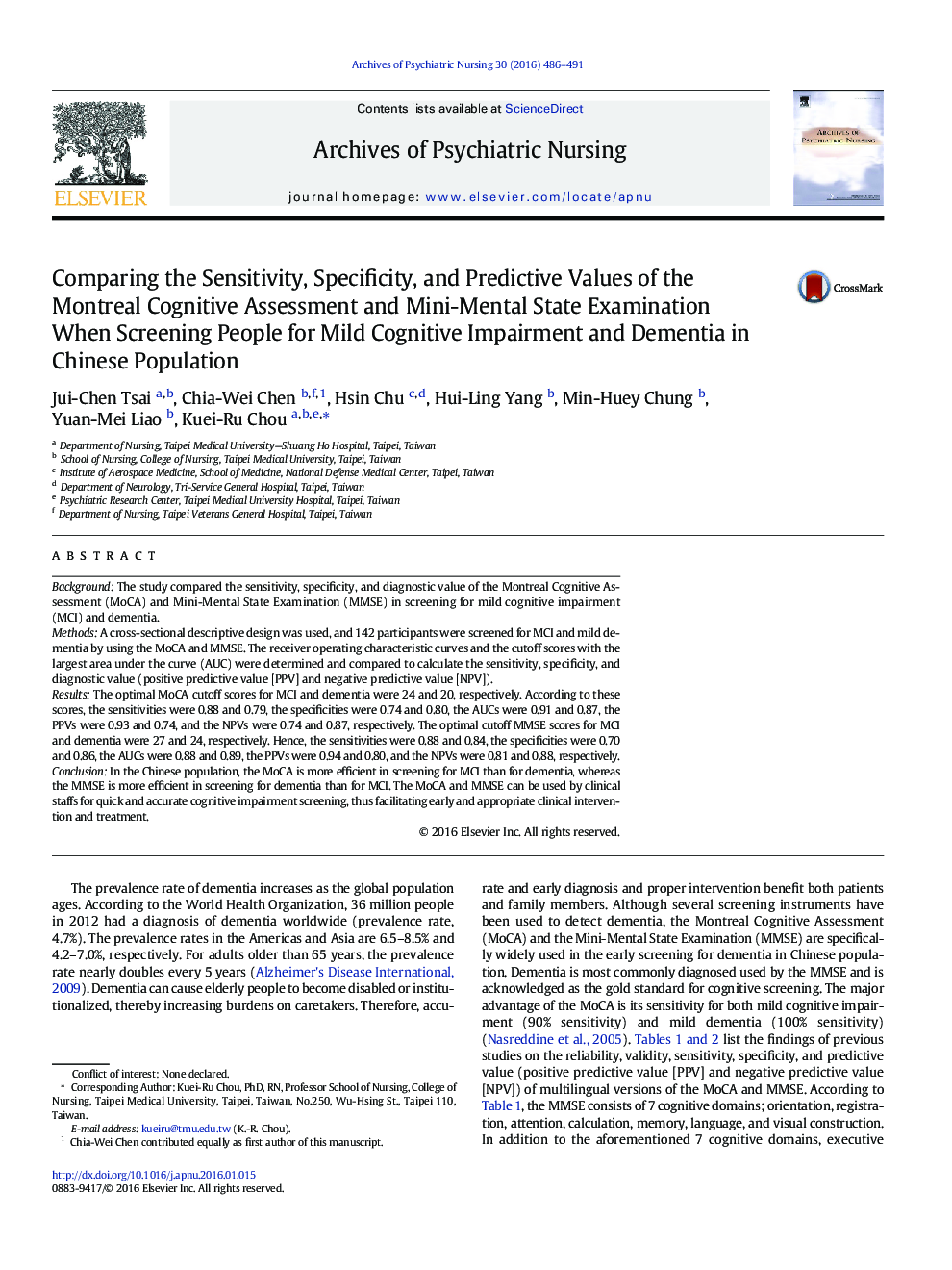| Article ID | Journal | Published Year | Pages | File Type |
|---|---|---|---|---|
| 314818 | Archives of Psychiatric Nursing | 2016 | 6 Pages |
BackgroundThe study compared the sensitivity, specificity, and diagnostic value of the Montreal Cognitive Assessment (MoCA) and Mini-Mental State Examination (MMSE) in screening for mild cognitive impairment (MCI) and dementia.MethodsA cross-sectional descriptive design was used, and 142 participants were screened for MCI and mild dementia by using the MoCA and MMSE. The receiver operating characteristic curves and the cutoff scores with the largest area under the curve (AUC) were determined and compared to calculate the sensitivity, specificity, and diagnostic value (positive predictive value [PPV] and negative predictive value [NPV]).ResultsThe optimal MoCA cutoff scores for MCI and dementia were 24 and 20, respectively. According to these scores, the sensitivities were 0.88 and 0.79, the specificities were 0.74 and 0.80, the AUCs were 0.91 and 0.87, the PPVs were 0.93 and 0.74, and the NPVs were 0.74 and 0.87, respectively. The optimal cutoff MMSE scores for MCI and dementia were 27 and 24, respectively. Hence, the sensitivities were 0.88 and 0.84, the specificities were 0.70 and 0.86, the AUCs were 0.88 and 0.89, the PPVs were 0.94 and 0.80, and the NPVs were 0.81 and 0.88, respectively.ConclusionIn the Chinese population, the MoCA is more efficient in screening for MCI than for dementia, whereas the MMSE is more efficient in screening for dementia than for MCI. The MoCA and MMSE can be used by clinical staffs for quick and accurate cognitive impairment screening, thus facilitating early and appropriate clinical intervention and treatment.
